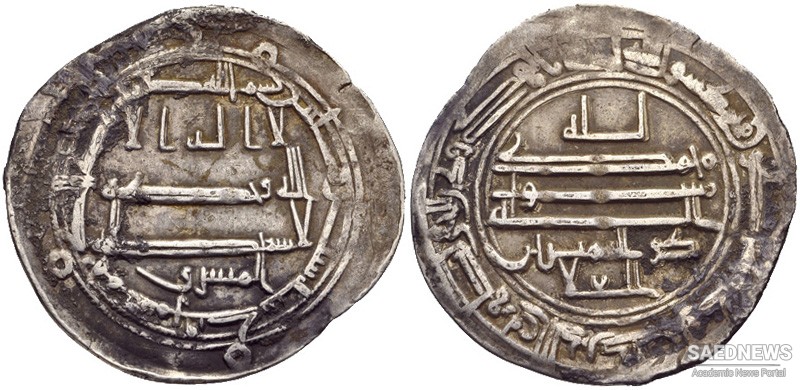The founders of the Tahirid family fortunes were typical of the Persians who had lent their support, first to the anti-Umayyad da'wa of Abu Muslim, and then to the new regime of the 'Abbasids which in 132/749 emerged from that upheaval. From the accession in that year of the Caliph al-Saffah to the death of al-Ma'mun over eighty years later, the Khurasani troops formed the backbone of the 'Abbasid army and the mainstay of the dynasty, fully meriting their designation of abn al-daula "sons of the dynasty". Their services contributed much to the victory of al-Ma'mun, who commanded the human and material resources of Persia, over his brother al-Amin, whose main support came from the Arabs of Iraq. Only with the accession in 218/833 of al-Mu'tasim did the Persian element in the caliphal armies take second place to newer groups, most prominent amongst which were Turks from the Central Asian and South Russian steppes. Ruzaiq, ancestor of the first Tahirid governor of Khurasan, Tahir b. al-Husain, was a maula or client of Talha b. 'Abd-Allah al-Khuza'i, known as "the incomparable Talha" (Talha al-Talahat), who had been governor of Sistan towards the end of the 1st/7th century. Tahir's grandfather Mus'ab b. Ruzaiq played a part in the 'Abbasid revolution in Khurasan, acting as secretary to the 'Abbasid da'i or propagandist Sulaiman b. Kathir al-Khuza'i. As a reward for their services, these early Tahirids acquired governorships in eastern Khurasan. Mus'ab was governor of Pushang and apparently also of Herat. He was certainly governing Pushang for the Caliph al-Mahdi in 160/776-7, for in that year he was expelled from the town by the Kharijite rebel Yusuf b. Ibrahim al-Barm al-Thaqafl. These were years of considerable social, political and religious upheaval in Khurasan, but the Tahirids flourished in an unspectacular way, and their continued grip on Pushang foreshadowed the wider role they were later to play in Khurasan: both al-Husain and Tahir, son and grandson of Mus'ab, succeeded at Pushang. The sources agree that the Tahirids were ethnically Persian and that they acquired the nisba or gentilic of al-Khuza'I through clientship to the Arab tribe of Khuza'a. Tahir b. al-Husain's normal tongue was Persian, and Ibn Taifur records his dying words in that language. When the Tahirids were at the zenith of their power, attempts were made by their partisans to inflate their modest origins. Mas'udI states that they claimed descent from the hero Rustam, and the Arab poet Di'bil b. 'All, himself of genuine Khuza'i stock, satirizes the Tahirids' attempts to connect themselves on the one hand with Quraish (because Khuza'a had once in pre-Islamic times controlled Mecca) and on the other with the Persian Emperors.


 Tahirids and Disintegration of Arab Caliphate
Tahirids and Disintegration of Arab Caliphate














































